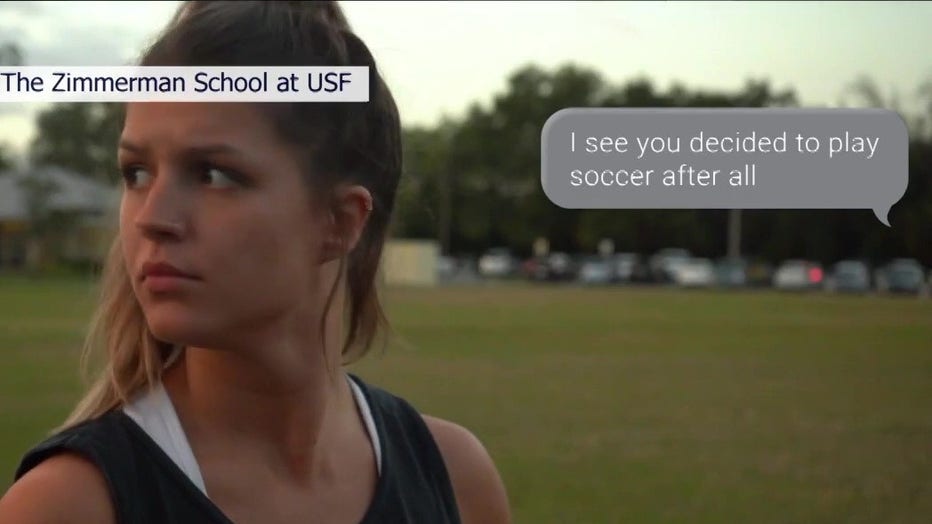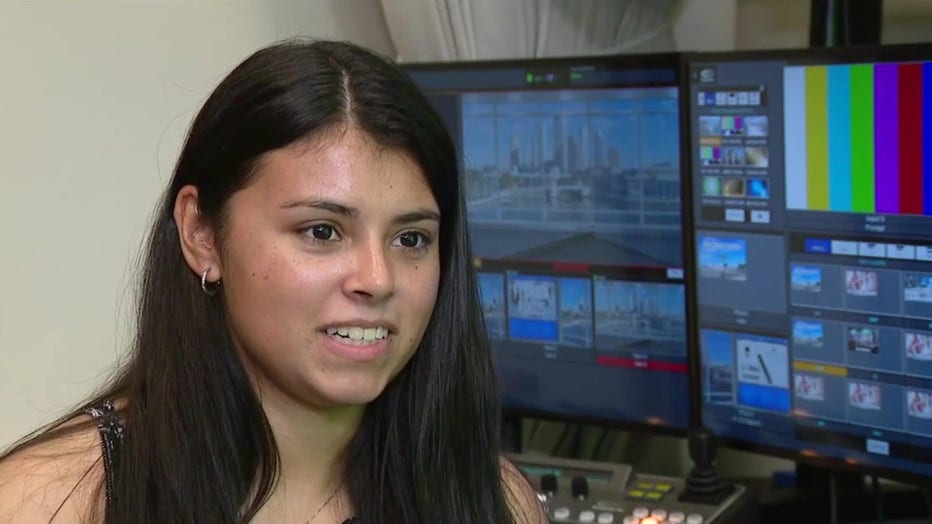USF student partners with FBI to create PSA to warn of dangers of social media
Online safety program by USF student
The FBI said with kids on their phones and scrolling on social media it's becoming an easier way to prey on young people.
TAMPA, Fla. - One student at USF is partnering with the FBI in Tampa to warn teenagers and young adults about the dangers of sharing personal information on social media.
Jenna Hernandez is a senior at USF and is in The Zimmerman School of Advertising and Mass Communications.
READ: Florida faces diabetes ‘epidemic’ as number outpaces national average, St. Pete doctor says
She was assigned a project to create a PSA for a class this semester.
"I do love watching TV and movies, especially more current ones, that you see people try to depict my age of 20, 21, and they always go so over the top with it," she said.
Hernandez says she wanted to focus her PSA on depicting a young adult in a relatable way. She decided to create one that warned teens and young adults about the dangers of social media, through the lens of a young woman.

Picture taken from the PSA
Her project turned into more than a class assignment for a grade.
"The FBI originally contacted me and talked about this partnership, and I was like, what a great opportunity for our students," Ferdinand Zogbaum, a professor at The Zimmerman School at USF said.
An FBI representative said there’s been an uptick in cyber crimes, especially sextortion, with teens and young adults.
"Unfortunately, a lot of teens and young adults feel less inhibited sharing online," Andrea Aprea, an FBI Tampa spokeswoman said. "They don’t realize all the time that sexual predators are there trolling and looking for victims."
READ: Will recreational marijuana be on Florida’s ballot? Case heads to state Supreme Court
Hernandez says her PSA follows a young woman through a typical day in her life.
"The wording in the PSA was really important to me because I didn’t want it to sound like a 50-year-old was trying to connect with 18-year-olds," Hernandez said.
In the PSA, The woman is seen doing daily activities like going to class, going to soccer practice and at home in her bedroom.

Jenna Hernandez, a senior at USF, put together the PSA.
"Every day, as she’s doing these different things, she starts getting these text messages that are a little creepy, like a person is able to see what she’s doing, but she can’t see them," Hernandez.
Hernandez says she wanted to play off of things that someone might post about on social media throughout their day.
"So the very first scene is her drawing a flower on her notebook, which very easily, a person could take a picture of that, post it to their story, and be like, ‘drawing in math class,'" she said. "And then the second scene where she’s walking to soccer practice, same thing. It’s a very easy post of, ‘going to soccer practice’. You’re sharing your locations. You’re sharing what you’re doing."
The messaging of the PSA is aimed at showing teens and young adults how dangerous it can become to share personal information online.
"This person is seeing what you’re doing, you have no idea who they are," Hernandez said. "They have access to your life. It’s no different than what is happening on social media. You’re posting personal things about you, even if they don’t feel personal."
Hernandez says the wording and tone of the PSA was important to her. She wanted to incorporate moments of silence to connect with peoples’ emotions and use language that teens and young adults would use in their everyday lives.
"She knows exactly how to put it together to relate to that age group," Zogbaum said.
Hernandez wanted the PSA to stand out from other similar messaging, and be something that the audience could relate to.
"They’ll just connect with it better," Hernandez said. "They can tell, ‘Oh my parents didn’t come up with this idea’. It’s just connecting with you in a different level."
Hernandez is working on a new PSA with the FBI on human trafficking.

